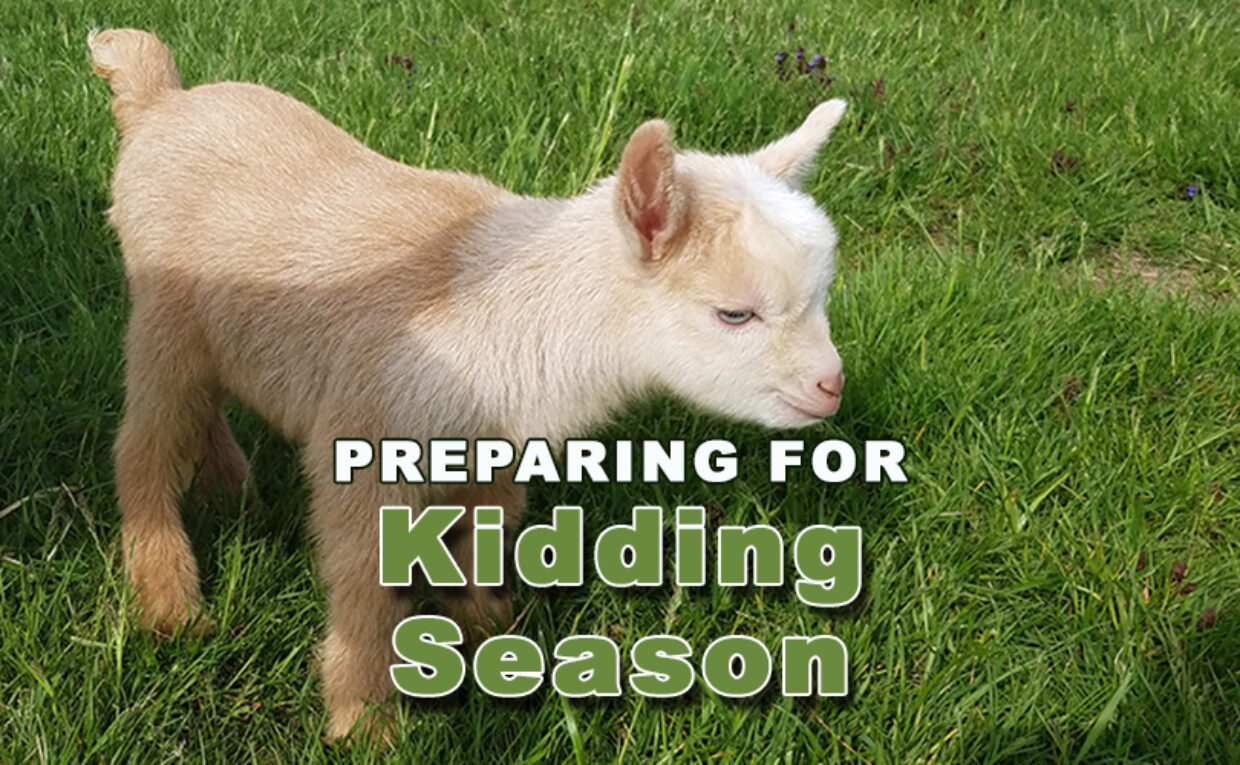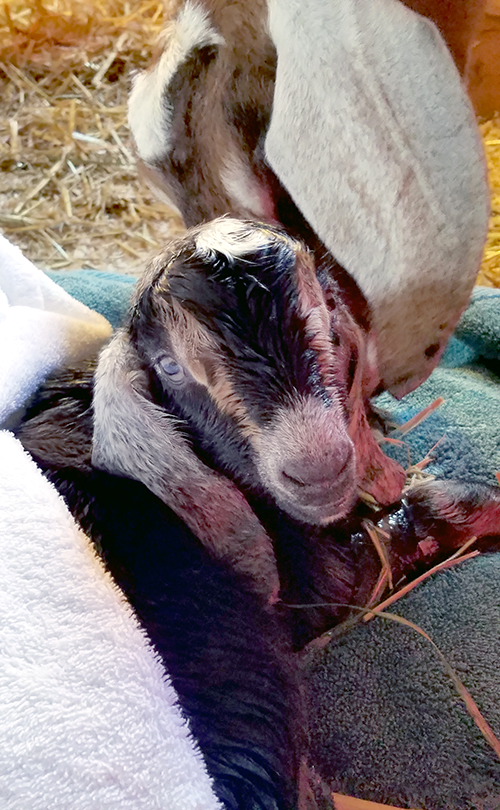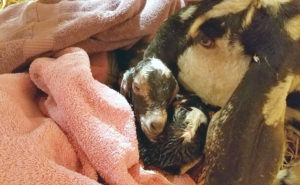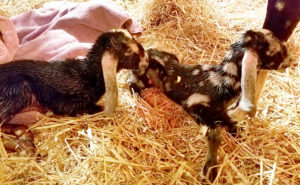Preparing for Kidding Season

 We were nervous parents the first time our goats gave birth. We had done a ton of research and prepared for every scenario including having our vet and a couple good goat friends on speed dial. We went to multiple goat kidding and health classes, met with friends who bred goats and read tons of books and online blogs.
We were nervous parents the first time our goats gave birth. We had done a ton of research and prepared for every scenario including having our vet and a couple good goat friends on speed dial. We went to multiple goat kidding and health classes, met with friends who bred goats and read tons of books and online blogs.
But until you are standing there watching your very first birth it doesn’t really sink in.
The signs of labor in goats are similar to humans…in that every one of them is different, but they do go in certain stages.
A goat’s gestation period is about five months. We are pretty careful with our breeding so we know what days our girls are with the bucks and we mark everything on a calendar. As the delivery date draws near, we keep a close eye on the does and check their tendons and vulva for signs of eminent labor.
Goats have two tendons about the thickness of a pencil that run from the top of their rump towards the tail in a V-shape. As delivery gets closer those tendons begin to relax to the point where you can’t feel them anymore. Once that happens delivery usually happens within 24 hours.
By the time the tendons are gone, the vulva (back end of the female goat) becomes swollen. This may happen right away or not until closer to delivery. This is the whole the-same-but-different scenario. Typically, the mucus membrane will break and you will start to see oozing. Again, we have one goat whose membrane breaks early and another whose breaks at the last minute.
Once this happens though you will notice signs of labor in your goat. By this point we have put our doe in a small kidding stall away from the rest of the herd so she can feel safe and have some peace and quiet. (Well…except for us leaning over her every five minutes.)
Your doe will lay down, then stand up, then lay down and so forth. She may start to paw a corner of the stall to make a “nest” and she may even start to nicker to her unborn kids.
As the labor intensifies, she may begin to groan and soon after she should start to push. Again, the-same-but-different falls into play here. We have goats that only push a few times and give birth and others that may push for an hour before giving birth.
This is where you want to be observant. A goat that is pushing for a long time with nothing happening may need help in delivering. (See note above about having vet on speed dial.) The baby maybe breach or somehow stuck.
Two toes and a nose, the saying goes…that is how baby goats should come into the world. As the mother pushes you will start to see two little feet, then the nose and the shoulders. The head and shoulders are the biggest part and may take a few pushes to get through. Unless the mother is really struggling, don’t interfere. She will push the baby out.
Once the head and shoulders are through it is usually just one or two more pushes until the baby is born. While it is important to let the mother lick the baby clean, we also help dry the baby with clean towels. Our kids are born in the early spring and where we live it can still be pretty cold. We don’t want to take chances of the babies catching a chill.
If your goat is delivering multiples it can take anywhere from 15 minutes to an hour before the next one arrives so don’t think your job is done. Goats typically have twins, but goats are known to have three, four and even five babies at a time.
If you are letting babies stay with the moms, step back and let mom and baby get to know each other. We usually stand by and watch to ensure the babies get their first drink of colostrum within the first couple of hours. If you plan to bottle feed, then you will need to milk the mom for the colostrum and teach your babies to drink from a bottle. Either way, make sure the newborns get their colostrum as soon as possible.
Having babies on the farm never grows old. Their energy and curiosity are always a reminder to get out and enjoy the day. I hope they spark the same joy in you.

Reply